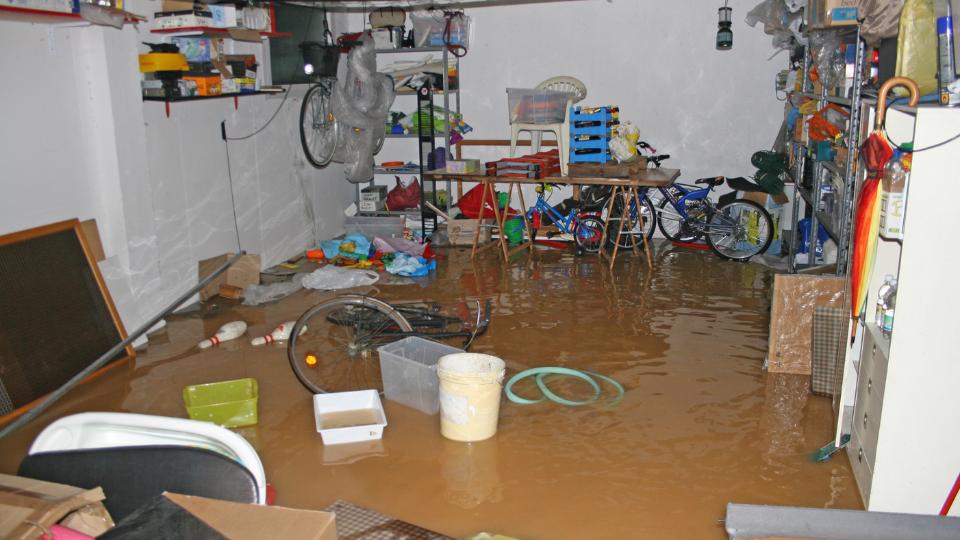Ask an Expert – Tips to Reduce the Chance of Flood Damage to Your Home

With Utah’s high amounts of snowfall this year, flooding is a possibility in many areas. For anyone who has experienced the impacts of water or mud inundating their home, this may induce a sense of helplessness.
Fortunately, there are many things that can be done now to prevent or lessen the possibility of flooding in and around your home. The Extension Disaster Education Network offers tips to help, including a publication from North Dakota State University titled, “Steps to Reduce Flood and Water Damage,” which includes the following tips:
* Move snow away from your home’s foundation. Moving snow just 3 to 5 feet from the house can reduce problems if the ground is sloped 1 inch per foot near the house.
* Prevent water from entering window wells. Build dams, and contour the ground so water will naturally drain away from the house. You can do this with sandbags or by adjusting the landscaping.
* Check your sump pump. Clean the sump pump and pit, and test the pump by pouring water into the pit. Consider having a spare submersible portable sump pump. Make sure the discharge hose delivers the water several feet away from the house to a well-drained area that slopes away from the house. If the hose outlet is too close to the house foundation or on flat ground, the water may simply recycle down through the house drain tile. Don’t run sump pump water into a rural septic system because the water may saturate the drain field.
* Be sure downspouts are in place. As snow melts, downspouts can be helpful in carrying water away from the house. Use caution if they are buried or frozen and need to be repositioned, as salt or chemicals to melt the ice could damage the lawn in the spring.
* Plan an escape route if roads or streets around you are known to flood. Where would you go if your home flooded? Consider local shelters or a family member or friend’s house. Plan and practice an evacuation route with your family.
* Plan for pets. Pets aren’t allowed in shelters due to health regulations. If left behind, stressed pets can damage your house, and their safety is at stake, too. Have a plan in place so you know where your pets will go in an emergency.
* Know where and how to safely shut off electricity and how to plug basement floor drains.
* Assemble supplies in case the electricity goes out. This includes water, food that requires no refrigeration or cooking, a non-electric can opener, a battery-powered radio and flashlight, as well as extra batteries.
* Move valuables off the floor. These include irreplaceable family photo albums, high school yearbooks, videotapes, tax records, insurance policies, household inventories, and other valuable items.
* Move hazardous materials to higher locations, including paint, oil, and cleaning supplies. These and other dangerous materials should not be left on the floor.
* Have emergency supplies on hand in case of an evacuation order. Gather water, nonperishable food, paper plates/cups and plastic utensils, extra clothing and shoes, blankets or sleeping bags, a first aid kit, prescription medications, cash and credit cards, important phone numbers, and specific items for babies, pets, and the elderly.
* Prepare appliances for flooding. Know where fuse boxes or breaker panels are so you can shut off appliances if it becomes necessary. Place freezers, washer, dryers, and other appliances on wood or cement blocks to keep motors above the water level. If high water is imminent and large appliances can’t be moved, wrap them in polyethylene film, tying the film in place with a cord or rope. The water may still get in, but most of the silt won’t, which will make cleanup easier.
* Teach adults and older children where water service mains and natural gas mains are and how to turn them off if necessary.
* Be open and honest with children. Hiding the situation from them may be even more stressful than talking openly. Let them know that you have a plan.
According to the Federal Emergency Management Agency, flooding is the most common natural disaster in the United States. Since “knowledge is power,” using knowledge to lessen or prevent damage to home and property and preserve a sense of emotional well-being and safety is a helpful way to exercise personal power.
To see the complete article, visit https://www.ag.ndsu.edu/publications/disasters/steps-to-reduce-flood-and-water-damage.
Contact
Kathleen Riggs
kathleen.riggs@usu.edu
435-586-8132


 Utah 4-H & Youth
Utah 4-H & Youth